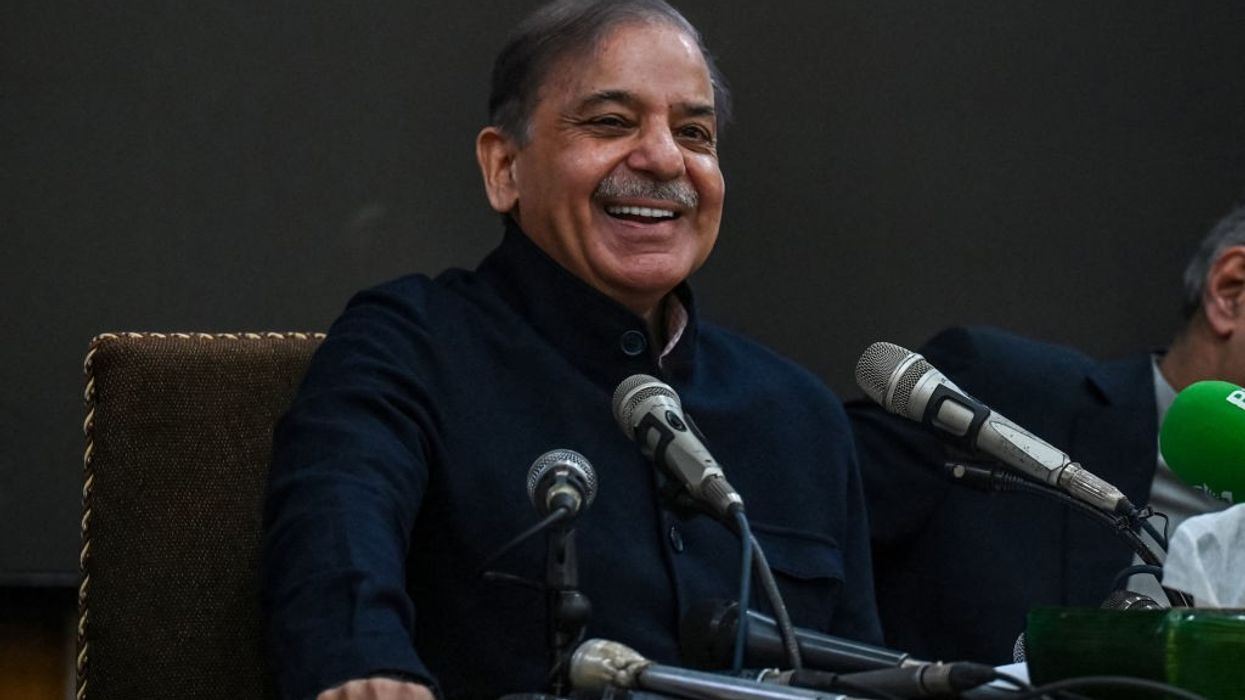PAKISTAN's newly formed parliament elected Shehbaz Sharif on Sunday (3) as prime minister for a second time, three weeks after uncertain national elections caused delays in the formation of a coalition government.
"Shehbaz Sharif is declared to have been elected the prime minister of the Islamic Republic of Pakistan," National Assembly speaker Ayaz Sadiq said, after announcing Sharif had secured 201 votes, above the required 169 votes in the house.
He beat Omar Ayub, the candidate backed by jailed former prime minister Imran Khan, who secured 92 votes.
The declaration was met with loud protests from the Sunni Ittehad Council (SIC) party backed by Khan. The lawmakers called for Khan's release and shouted slogans alleging Sharif had come to power through electoral rigging.
The Feb. 8 election was marred by a mobile internet shutdown, arrests and violence in its build-up and the unusually delayed results triggered accusations that the vote was rigged.
Sharif returned to the role he held until August when parliament was dissolved ahead of the elections and a caretaker government took over. No single party won a majority.
Sharif, 72, is the younger brother of three-time prime minister Nawaz Sharif, who spearheaded their Pakistan Muslim League-Nawaz (PML-N) party's election campaign.
Candidates backed by Khan gained the most seats but the PML-N and the Pakistan Peoples Party (PPP) agreed to form a coalition government, which enabled Shehbaz Sharif to be elected as prime minister as his brother stepped aside.
In his previous term, Sharif's government was able to negotiate a critical International Monetary Fund (IMF) deal but the process was mired in challenges, and measures required by the agreement - which expires in April - have contributed to rising prices and added pressure on poor and middle class households.
The new government will have to immediately start talks with the IMF for the next agreement to shore up the country's economy whilst also dealing with growing discontent over deepening poverty.
The government will also have to grapple with ongoing challenges from Khan's supporters.
Man with 'can-do' administrative style
Sharif was born in the eastern city of Lahore in a wealthy Kashmiri-origin family that was in the steel business. He started his political career as the chief minister of Punjab in 1997 with a signature "can-do" administrative style.
His cabinet members and bureaucrats who have worked closely with him call him a workaholic.
As chief minister, the younger Sharif planned and executed a number of ambitious infrastructure mega-projects, including Pakistan's first modern mass transport system in Lahore.
He was caught up in the national political upheaval when his brother was ousted from the premiership by a military coup in 1999 and he went into exile in Saudi Arabia.
Sharif entered the national political scene when he became the chief of the PML-N after the elder Sharif was found guilty in 2017 on charges of concealing assets related to the Panama Papers revelations.
Married twice, Shehbaz Sharif has two sons and two daughters from his first marriage but none from the second. One of the sons is in politics but the others are not in public life.
His second wife is Tehmina Durrani, the well-known author of My Feudal Lord, an autobiography about an abusive married life with an earlier husband.
Economic challenges
Pakistan continues to be enmeshed in economic crisis with inflation remaining high, hovering around 30 per cent, and economic growth slowing to around 2 per cent. February inflation dipped slightly to 23.1 per cent from a year earlier, in part due to a high base effect.
Sharif will need to emulate his feat of securing a short-term IMF bailout with the current programme expiring next month and a new extended deal needed to keep Pakistan on a narrow path to recovery.
But his main role will be to maintain ties with the military, which has directly or indirectly dominated Pakistan since independence. Unlike his elder brother, who has had a rocky relationship with the military in all his three terms, the younger Sharif is considered more acceptable and compliant by the generals, analysts say.
For several years, the military has denied it interferes in politics. But it has in the past directly intervened to topple civilian governments three times, and no prime minister has finished a full five-year term since independence in 1947.
Privatising some lumbering state giants, including the national airline, and securing foreign investment will also be key to ease the economic crisis. The Sharis have close ties with rulers in Saudi Arabia and Qatar, which could help in securing investments in several projects Pakistan has lately showcased for sale.
Although defence and key foreign policy decisions are largely influenced by the military, Sharif will have to juggle relations with the US and China, both major allies. He is also faced with dealing with fraying ties with three of Pakistan's four neighbours, India, Iran and Afghanistan.
(Reuters)





